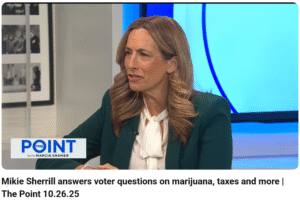CBD vape pens are great for anxiety. Consumers inhale their vapor, allowing CBD to enter the bloodstream within minutes. Peak blood concentrations occur faster than oral CBD forms.
Table of Contents
- Dosing Guidelines and Research Findings
- Extract Types and Their Effects
- Comparing CBD and THC Vape Options for Anxiety Management
- Physical and Mental Benefits
- Safety Concerns and Side Effects
- Product Selection Criteria
- Consumer Demographics and Patterns
- Clinical Limitations and Expert Warnings
- Practical Usage Recommendations
- Conclusion
Inhalation bypasses the digestive system, making CBD vape pens are useful for panic attacks and sudden stress. Consumers often report feeling effects within 5 to 15 minutes, while oral CBD can take 30 to 90 minutes to work.
Dosing Guidelines and Research Findings
Manufacturers recommend starting with low doses. Consumers should increase amounts based on personal tolerance. Some people need 10 mg per session, while others require 50 mg or more. Body weight, metabolism, and anxiety severity all influence dosing needs.
Extract Types and Their Effects
CBD vape pens come in three main extract types, each producing different results for anxiety management.
- Full-spectrum pens contain multiple cannabinoids, terpenes, and flavonoids, including up to 0.3% THC. Some consumers report better anxiety relief from full-spectrum products due to the entourage effect. However, THC presence can cause problems for drug tests. People sensitive to THC should avoid these options.
- Broad-spectrum pens include multiple cannabinoids and terpenes but no THC. They provide compound variety without psychoactive risks. Quality broad-spectrum products confirm zero THC content through lab testing.
- CBD isolate pens contain pure cannabidiol with no other cannabis compounds. These offer consistency and predictable effects. Consumer reports suggest less pronounced anxiety relief compared to full-spectrum options, but isolate pens remain popular for those concerned about drug interactions.
Comparing CBD and THC Vape Options for Anxiety Management
CBD vape pens differ from THC-based products in both psychoactive profile and legal status. While CBD products contain minimal THC (under 0.3%), delta 9 vape pens and other THC vaporizers produce intoxicating effects. Some consumers combine both cannabinoids for anxiety relief. Delta 8 products fall between CBD and delta 9 in potency. Medical cannabis programs in some states allow higher THC concentrations for anxiety treatment.
Research on THC for anxiety shows mixed results. Low doses may reduce anxiety in some people, but higher doses often increase panic and paranoia. CBD appears more consistent for anxiety reduction without intoxication risk. Consumers switching from THC to CBD vapes often report fewer side effects. Those using combination products should monitor ratios carefully.
Physical and Mental Benefits
CBD vape pens affect multiple anxiety-related symptoms. Many consumers report better sleep at higher doses. Some find low doses stimulating rather than calming, making dose timing important for sleep benefits.
Memory and concentration may improve with regular CBD use. Most cognitive benefits appear from sustained administration rather than single doses. Animal studies support this evidence, while human trials remain ongoing.
Physical symptoms also respond to CBD in different ways. Consumers report reduced muscle tension, less pain, and improved digestion under stress. Heart rate variability shows improvements during anxiety episodes.
Safety Concerns and Side Effects
Most adverse effects from CBD vape pens are mild. Fatigue and temporary sedation occur most often. Severe reactions are rare but may include respiratory distress or allergic reactions to synthetic additives or flavorings.
Trusted brands avoid propylene glycol and vitamin E acetate, which cause lung irritation. Independent lab tests verify ingredient safety. Batch-level testing helps detect pesticides, heavy metals, and solvents.
Hardware quality also matters. Cheap pens may leak or overheat, while metal components can release toxic particles when heated. Glass and ceramic heating elements are safer alternatives.
Product Selection Criteria
Companies like TribeTokes, Savage CBD, and Select provide detailed lab reports. Certificates of Analysis (COAs) show cannabinoid content and contaminant screening. Transparent sourcing information helps buyers make informed decisions.
Products with vague ingredient lists or missing lab reports should be avoided. Consistency between batches varies by manufacturer, making lab verification essential.
The FDA has not approved CBD vape pens for anxiety treatment. These products must be sold as supplements. Companies making medical claims face regulatory action. Consumers should always verify product information independently.
Consumer Demographics and Patterns
CBD vape pen consumers with anxiety are typically between 23 and 45 years old, with gender distribution roughly equal. Many have previously tried prescription anxiety medications.
Consumers can treat vape pens as rapid-response tools. Episodic anxiety and performance-related stress are common use cases. Convenience and discrete dosing appeal to working professionals. Public speaking and social events are frequent triggers for usage.
Survey data shows consumers value dosing control and flexibility. Situational needs vary throughout the day.
Clinical Limitations and Expert Warnings
Current research has gaps. Long-term vaping effects on the lungs remain uncertain. Bioavailability varies with device technology and consumer technique. Most clinical evidence still comes from oral CBD studies.
Regulatory oversight differs by state and country. Product reliability changes across brands. CBD concentration and terpene profiles vary widely, making batch-specific testing critical for safety.
Clinicians recommend precautions. Reading Certificates of Analysis helps prevent contamination exposure. Starting doses should be minimal. Healthcare providers should always be informed about CBD use, especially if other medications are involved.
People with respiratory conditions face higher risks. Asthma and COPD patients should avoid vaping and consider alternative CBD delivery methods.
Practical Usage Recommendations
Track both positive effects and side effects. Keeping a log of doses, timing, and symptoms helps optimize personal use protocols.
Quality indicators include transparent lab testing and clear labeling. Avoid products with artificial flavors or unknown additives. Hemp source and extraction methods also matter for safety and effectiveness.
CBD vape pens work best as part of a broader anxiety management strategy. Cognitive behavioral therapy remains highly effective. Prescription medications may still be necessary for some consumers. Lifestyle factors like exercise and sleep hygiene also contribute to better outcomes.
Storage conditions affect product stability. Heat and light degrade CBD over time, while refrigeration extends shelf life. Most pens maintain potency for 12 to 24 months when stored properly.
Conclusion
CBD vape pens provide a fast-acting and convenient option for anxiety relief, especially during sudden stress or panic attacks. While research supports their potential, evidence specific to vaping methods is still developing, and safety considerations remain important. Choosing high-quality products with verified lab testing, starting with low doses, and consulting healthcare professionals ensures safer use. CBD vape pens can play a valuable role in modern anxiety management.










